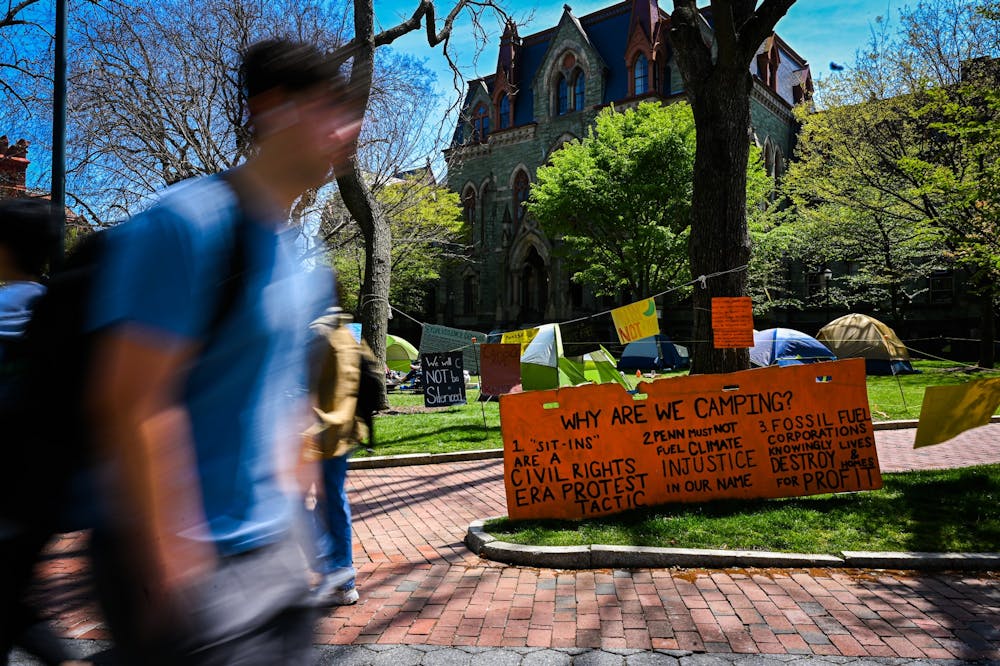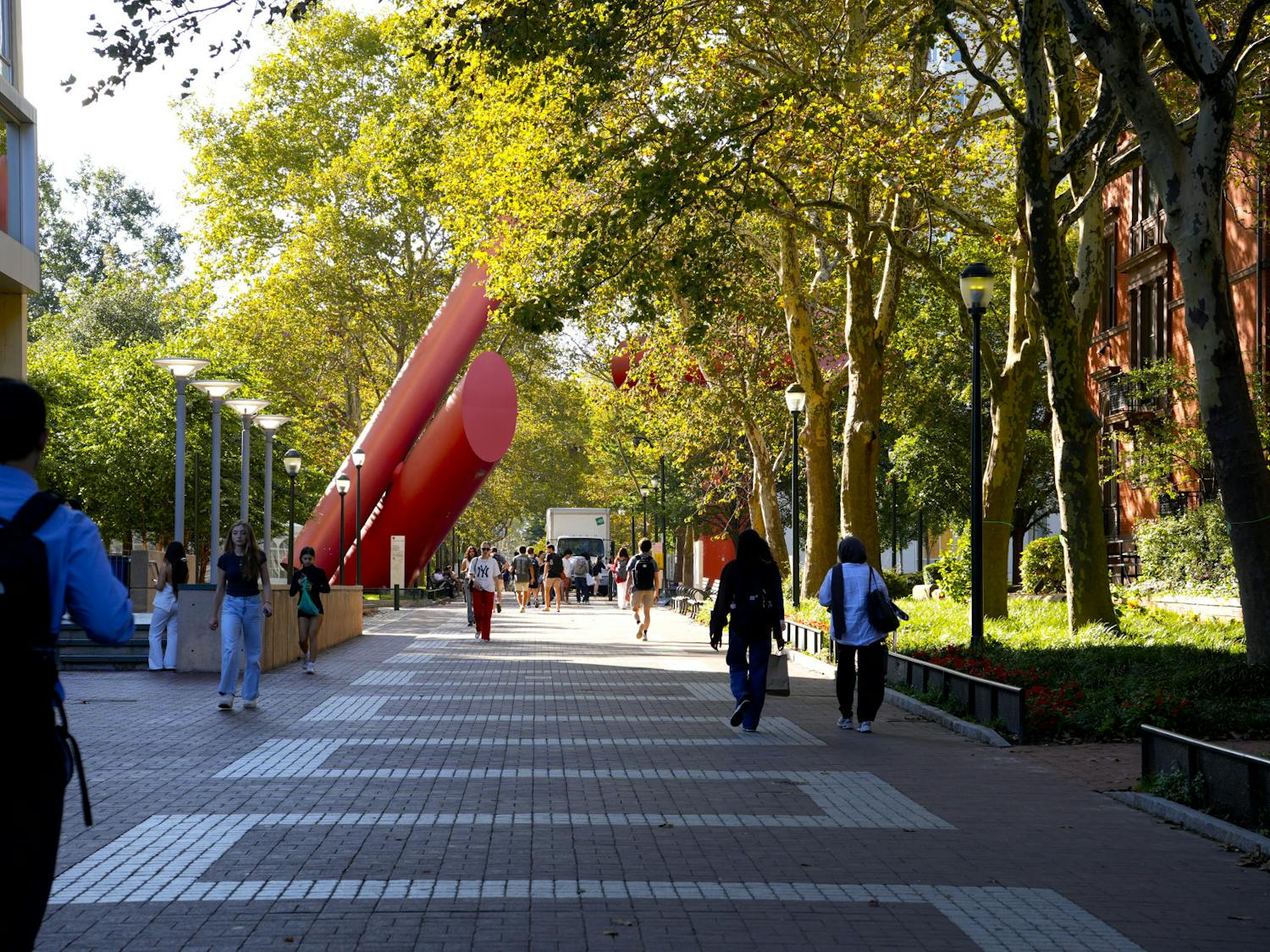On April 24, Fossil Free Penn ended its six-day-long encampment on College Green, which was held to call on the University to divest and support climate justice organizations on Penn’s campus and beyond.
The encampment began on April 19 when FFP hosted a “S’mores & Community” event on College Green. Members of the organization remained on the premises past their reserved time for the event, pitching tents and hanging up signs listing their demands of the University.
FFP Campaign Coordinator and Engineering senior Ari Bortman said that the group decided to end the encampment in light of upcoming University-wide student events, such as U-Night and Hey Day, as well as the upcoming final examination period. He added that the protest was held against "Penn and the administration, not against fellow students."
FFP Campaign Coordinator and College sophomore Sarah Sterinbach called the protest "the most successful action in FFP history."
"We ended it because we achieved so much, and wanted to let our organizers and participants rest, and get ready for what's next," Sterinbach added.
Interim President Wendell Pritchett allowed Penn administrators to schedule an upcoming meeting with FFP to allow the group to voice its demands. However, FFP rejected the meeting opportunity, citing frustration with a lack of effectiveness of meetings with University administrators in addressing its concerns.
“We’ve gone through the process of having a meeting with administrators who took away the need for pressing action,” Bortman said. “Our demands and how to achieve them are very clear. We want a plan of action, not another stalling meeting.”
In an email sent to The Daily Pennsylvanian on April 24, University spokesperson Ron Ozio reiterated Penn’s efforts to combat climate change. He referenced Penn's goal of reducing the net greenhouse gas emissions from the University’s endowment investments to zero by 2050 — which Ozio said is an effort that is “currently underway” — and the announcement that Penn would cease any new commitments to private equity vehicles dedicated to investments in fossil fuel production.
RELATED:
Fossil Free Penn launches campaign demanding University to 'cut all ties' to fossil fuels
About 100 Fossil Free Penn members shut down Board of Trustees meeting
“Taken together with Penn’s educational, research and operational initiatives, these investment decisions are significant and major steps that will reduce Penn’s carbon footprint and lessen the impact of climate change on society,” Ozio wrote.
In November 2021, members of climate-focused student groups, including Fossil Free Penn, criticized the University for stopping short of complete divestment.
On April 20, Sterinbach said that Penn Police had asked 12 student protestors present at the encampment for their Penn IDs. The next day, the same students received a message from the Office of Student Conduct stating that the students violated the University’s Guidelines on Open Expression.
“During a registered event you participated in activities that were not part of the registration, then failed to end the event at the scheduled time, and failed to follow University officials’ instructions regarding leaving the area,” the message read.
The 12 students will meet with officials from Penn’s Office of Student Conduct on April 25 to discuss this incident. According to the message, each student is able to bring a faculty member to represent their case.
Although the group did not achieve all of its demands of the University, some members of FFP consider the encampment successful.
“We achieved all our goals — over 70 students slept out with us, we talked to over a thousand people on Locust, and more read our signs, we received outpourings of support from around Philly and around the world, and Penn administration were asking our demands and begging us to leave,” Bortman wrote to the DP.
In February, FFP launched its “Know Our Demands” campaign to inform the Penn community about the importance of divestment and other climate justice-related initiatives. FFP called on the University to divest and cut all ties from fossil fuels and all destruction from profit, reinvest in a sustainable future for Philadelphia, and “repair the damage from Penn’s complicity in environmental racism.”
Sterinbach said that the fact that University administrators asked to hear FFP’s demands during the encampment represents a major positive step, as she believes they often neglect FFP's concerns.
Sterinbach added that, though the encampment is over, FFP will continue to fight to achieve its demands.
“The power of what we did was showing administration that we can’t be intimidated or threatened away,” Sterinbach said. “Fear won’t keep us from fighting for these issues.”









